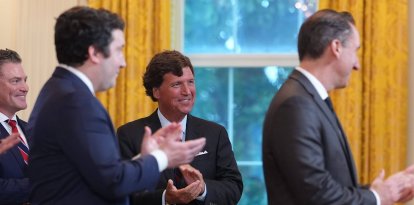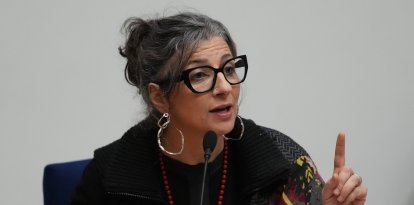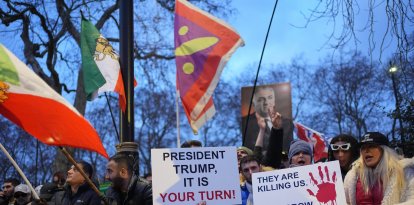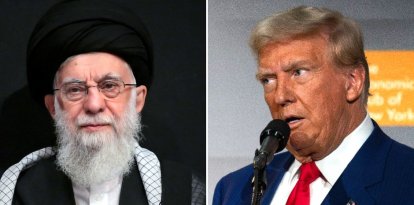Elon Musk's revolution: Changing government with technology
The creator of Tesla is not only cutting government spending, but he is also using technology to change how the state operates and creating a cultural shift.

Elon Musk/ photo by Kevin Lamarque
"This is a revolution and I think it could be the biggest revolution in government since the original revolution," Elon Musk said in an interview with Bret Baier. Musk's expression is not an exaggeration. Indeed what we are seeing in this effort is a revolution, a radical and profound change in the political and economic structure, which implies, as Musk also pointed out, a cultural change.
In a conversation with Senator Ted Cruz, Musk explained that the key to knowing what is really going on in government, including fraud, is systems. In the Republican's podcast, Musk highlighted that instead of asking the area manager, and that person to their employee, and that employee to another, in an endless chain that will eventually arrive at information that is in a system, the reliable and quick solution is to go straight to the data. He knew all along that his job of ending waste in government had to do with looking into the systems. These kinds of solutions don't occur to a career politician. A civil servant who has been in D. C. for years would try to fix things by asking for reports that would take an eternal and ineffective process.
"Musk doesn't think outside the box, it's that for him the box doesn't even exist," Senator Cruz said, describing the businessman. Musk combines two fundamental characteristics. On the one hand, his technical knowledge, not only in systems but also in economics, let's remember that he insisted since the campaign that President Trump should reduce state spending, in fact he suggested the name DOGE and the department's objectives. Secondly, Musk knows no limits. He decided to create a private spaceflight company that went against the belief that this mission was for the states. He also proposed that the state could create a department to, to some extent, self-destruct.
In the conversation with Baier, Musk explained that much of the cause of government fraud is "systems not communicating." A state official, for example, doesn't know he's giving a loan to a baby because the systems aren't connected, and he can't cross-reference the information to prevent fraud. This kind of miscommunication between systems affects in countless ways. Musk's team is now working on fixing this at the source, from the systems, a completely different approach to the problem than what a bureaucrat might traditionally suggest. Musk's vision is a profound change in government driven by technology.
It's also a cultural shift. Musk is bringing the government up to the standards of private companies, creating a culture where the agent cares about his job and cares about doing it well. The entrepreneur emphasized several times in the conversation with Baier that if a private company operated like the government, it would go bankrupt immediately. On different occasions, he has also warned about the imminent need to solve the fiscal problem or else he assures that the country will go bankrupt.
Musk is achieving change at levels that only he, supported by a president like Donald Trump, could achieve. It is not only a spending cut but a profound change in the system (in every sense of the word). It is also driving a cultural change, demanding accountability and real control in the management of taxpayers' money.

























